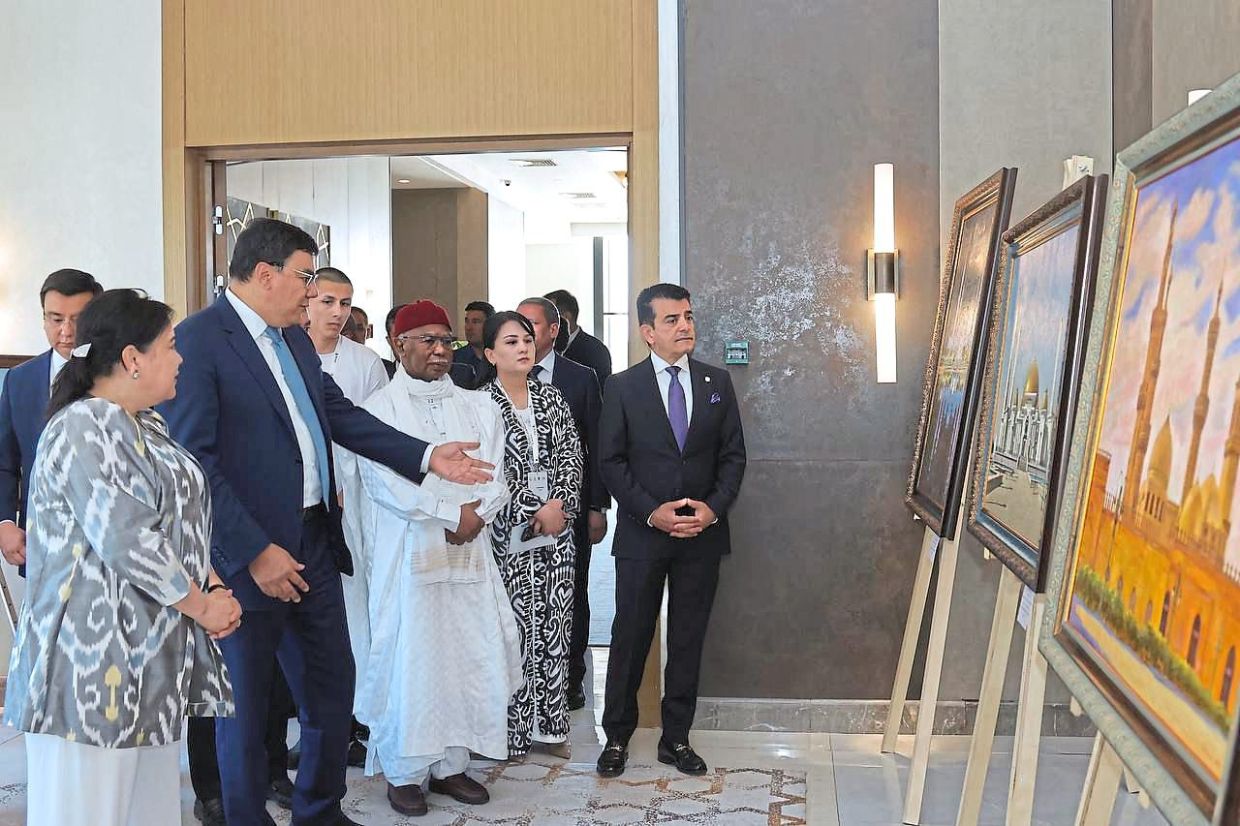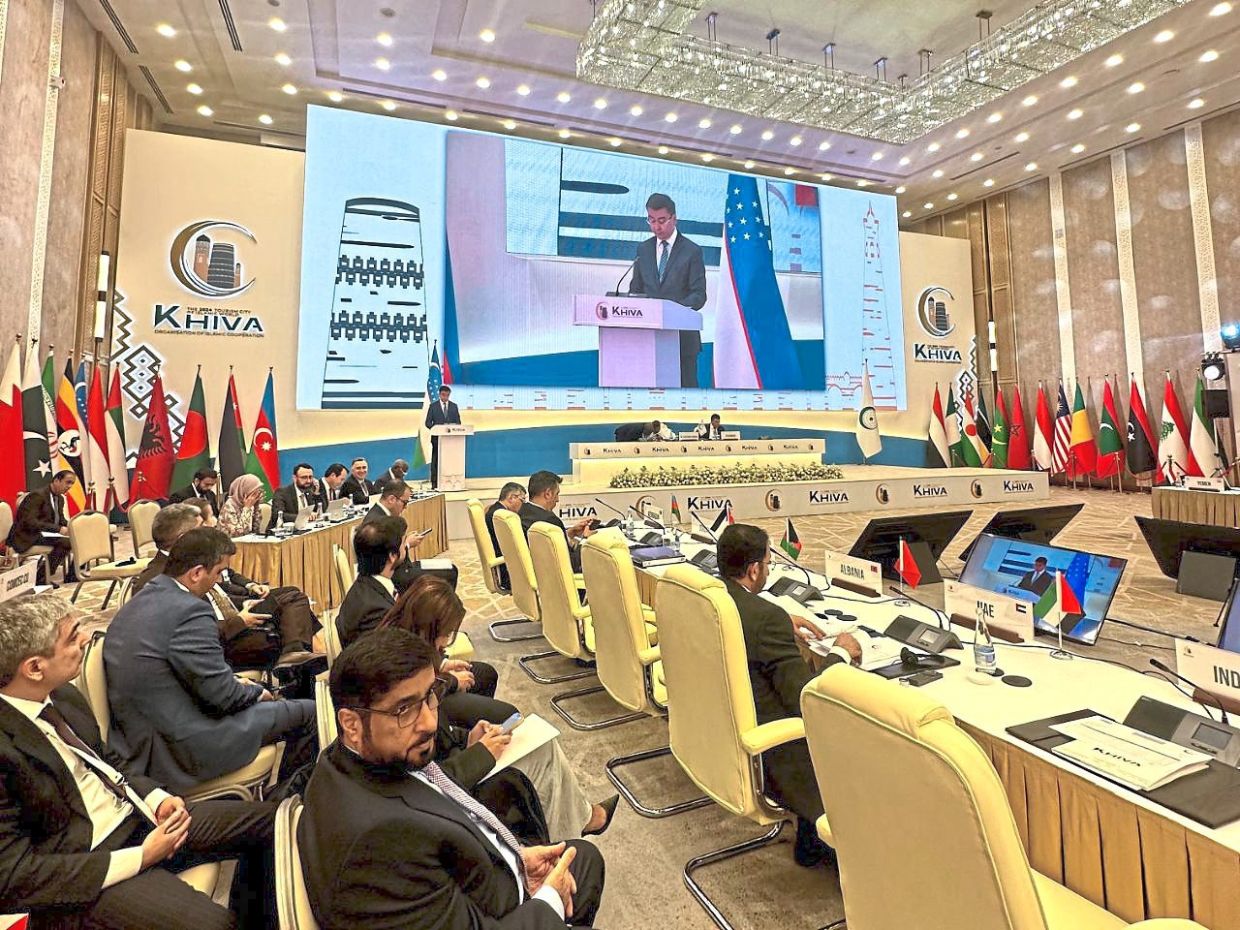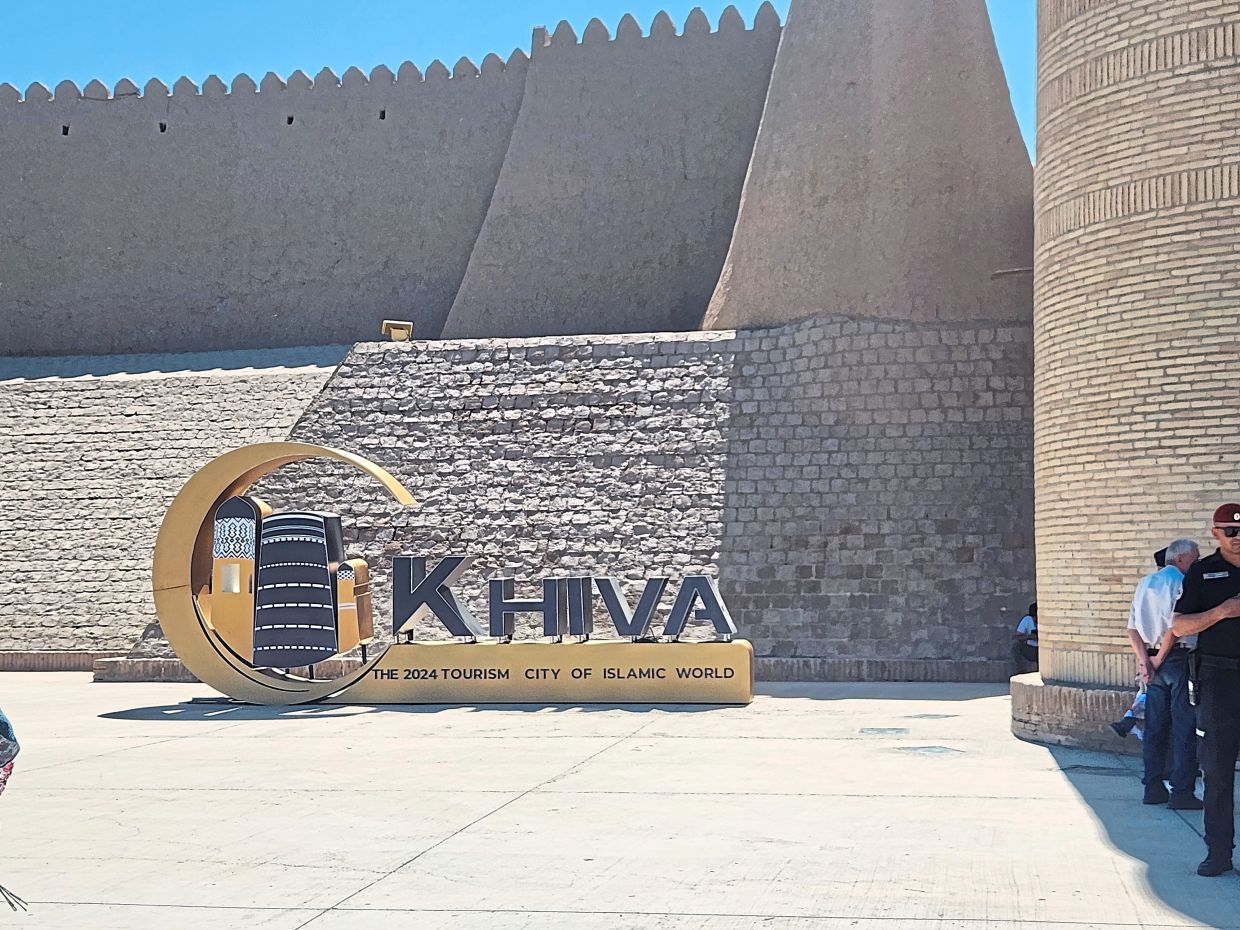Historic: A view of Khiva’s ancient fort city. — Wikimedia Commons
AS the sun rises over the ancient city of Khiva, casting long shadows across its labyrinthine of streets, it feels as though time itself has paused.
This Unesco World Heritage Site in Uzbekistan is more than just a city – it’s a journey back to an era of silk traders, caravans, and epic tales of adventure.
The city is also famous for, among others, its minarets; the world’s biggest minaret is located there.
According to local officials, the city was the centre of the northern branch of the Great Silk Road and was a centre of learning and science between the ninth and 12th centuries, with the renowned Al-Ma’mun Academy in Khorezm fostering groundbreaking work in astronomy, mathematics, medicine, and chemistry.
This region produced several prominent Muslim scholars including Muhammad Musa Al-Khwarizmi, known as the Father of Algebra, and Abu Al-Rayhan Al-Biruni, an esteemed scholar of astronomy and philosophy.
Among some of the city’s ancient sites are the Ichan-Kala Fortress, an open air fortress-city that was a crucial hub on the Great Silk Road, facilitating a vibrant exchange of goods, ideas, and culture between East and West.
During its long history, Khiva has survived many dynasties of Khorezm rulers, with many people still living in the fortress until today.
Recently, the city hosted the 12th session of the Islamic Conference of Tourism Ministers of the Organisation of Islamic Cooperation (OIC), which concluded last Sunday.
The meeting gathered several tourism ministers, senior officials from the tourism sector of OIC member states, including from Malaysia, as well as representatives from regional and international organisations dedicated to tourism and culture.
Malaysia’s delegation was led by Tourism, Arts, and Culture Ministry secretary-general Datuk Roslan Abdul Rahman.
The meeting showcased various suggestions and the transformative potential of tourism among OIC member states, with the representatives discussing sustainable tourism practices, digital transformations, and community-based tourism.
The conference was inaugurated by Aziz Abdukhakimov, Uzbekistan’s Ecology, Environmental Protection, and Climate Change Minister.
In his opening address, Abdukhakimov highlighted Uzbekistan’s desire to enhance cooperation among OIC member states, especially in the post Covid-19 recovery phase.
During the meeting, the conference announced that three cities won the OIC’s Tourism City Award: Dakar, Republic of Senegal, will be the OIC City of Tourism for 2025; Cairo, Arab Republic of Egypt, for 2026; and Lahore, Islamic Republic of Pakistan, for 2027.
The conference also commended the significant plans made by the relevant OIC institutions for the commemoration of Khiva as the OIC City of Tourism for 2024, and urged OIC member states to actively participate in the various activities planned for awardee cities in 2025, 2026 and 2027.
The conference also endorsed the state of Qatar as the host country for the next session to be held in 2026 and urged member states and OIC institutions to prepare to join in.
Also agreed at this meeting was the need for all OIC member states and relevant institutions to implement a strategic roadmap for the development of Islamic tourism, and organise annual events on Islamic tourism to promote intra-OIC tourist flows, through visa facilitation, investment promotion, branding and standardisation, and capacity building.
The conference also invited the Islamic World Educational, Scientific and Cultural Organisation (Icesco) to work closely with the OIC and relevant international organisations, including but not limited to United Nations Tourism, on the revised Strategy for the Development of Sustainable Cultural Tourism in the Islamic world.
In addition to that, the Khiva conference called upon OIC member states to invest in digitalisation to promote and market their respective destinations.
The meeting also made calls to improve international visitors’ experiences in the tourism sector with a view to speeding up the recovery efforts from Covid-19 pandemic and hosting more international tourists.
The participants then expressed their gratitude to Uzbekistan for holding the conference in the historical city of Khiva under the theme “Development of the Tourism Industry in a Sustainable and Resilient Way”.
They also congratulated Uzbekistan for Samarkand being selected as the Culture Capital of the Islamic World.
Meanwhile, OIC secretary-general Hissein Brahim Taha said that tourism stands as a powerful catalyst for economic growth, especially for micro, small, and medium-sized enterprises (MSMEs), which form the economic backbone of OIC member states.
He added that by investing in infrastructure, promoting cultural heritage, and facilitating entrepreneurial opportunities, OIC member states can unlock the potential of MSMEs to generate employment, spur innovation, and drive inclusive growth.
He said that tourism possesses the transformative ability to alleviate poverty by creating income-generating opportunities for local communities, particularly in rural and marginalised areas.
In the efforts to promote community-based tourism initiatives and empower local stakeholders, the OIC secretary-general affirmed that the body can ensure that the benefits of tourism reach those who need it most, contributing to poverty eradication and sustainable development.
He also expressed appreciation to Uzbekistan for hosting the conference, which will, “significantly contribute to promoting tourism and cultural exchange among OIC member states”.
Taha acknowledged Uzbekistan’s socioeconomic progress, noting its significant efforts toward regional socioeconomic integration.
In conjunction with the conference, Khiva also hosted an exhibition of paintings by artists from OIC member countries.
The exhibition of Cultural Attractions of the Islamic World highlighted the rich cultural and spiritual heritage of various Islamic nations through art.
Khiva also has been a city of artisan since ancient times.
Various types of local arts and crafts have emerged, notably its art of wood-carving, painting, stonework, pottery art, the art of making knives, and carpetmaking.
Many of its designs depict everyday life and cultural customs of the locals living in the city.
For a strategic roadmap
Delegates viewing works from the Cultural Attractions of the Islamic World exhibition.
WhatsApp Image 2024-06-02 at 3.18.57 PM
Abdukhakimov making his points to delegates and ministers at the conference.
WhatsApp Image 2024-06-07 at 7.21.35 PM






